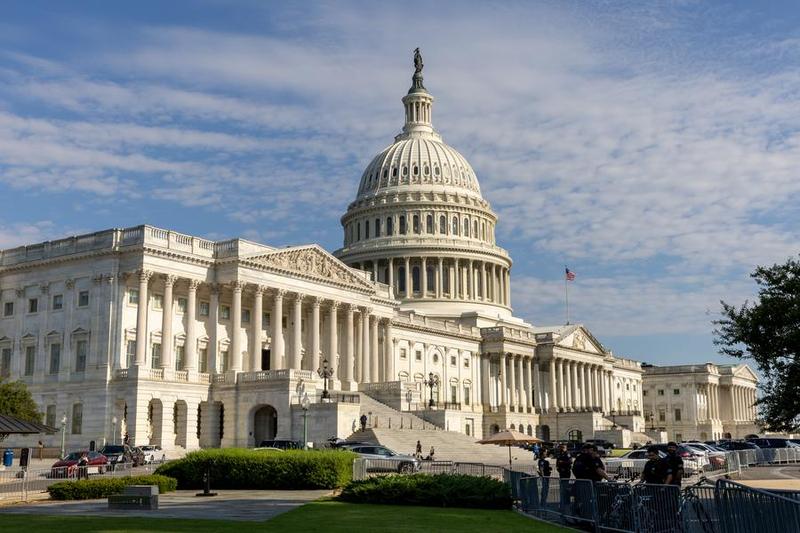Bundling trade with other issues coercive approach demolishing rules-based order: China Daily editorial


The convergence of issues in different fields — some of which happen spontaneously; some of which are deliberately created — has become a trait of the times.
In the latest example of that, the US administration is demonstrating an increasing zeal to try and merge its handling of economic and trade disputes with other economies with some burning issues.
The US administration recently announced that it is slapping 25 percent tariffs on India as well as an unspecified penalty because of India's purchasing of Russian oil. A similar threat was also made to Brazil and other countries trading with Russia.
The US is also trying to bind its trade disputes with Canada with the Palestine question.
After Ottawa announced that Canada is planning to recognize the State of Palestine at the 80th session of the United Nations General Assembly in September if certain conditions are met, following recent announcements by France and the United Kingdom, the US president said it would be hard for Canada to reach a trade deal with the US.
Though some suspect these US tariff threats citing the Ukraine crisis and the Palestine question are mere pressure tactics, the US' practices in exercising its "art of the deal" will unavoidably impact the settlement of the economic and trade disputes between it and other economies, as well as make the resolution of these burning issues more complicated. The US administration has consistently used tariffs as leverage to secure noneconomic benefits, including security and geopolitical gains, believing it to be an effective means of killing two birds with one stone.
That approach has also been evident in its handling of the trade disputes with the European Union, Japan and some other Southeast Asian nations, in which the Ukraine crisis, "Indo-Pacific" strategy and the South China Sea issue are all overtly or covertly touched upon.
Despite the disservice the US administration has done to the resolution of such issues by adopting its transactional, speculative and exploitative approach to both economic and trade issues, geopolitical issues and climate change, it seems increasingly confident that this coercive approach can secure wins for the US on different fronts by leveraging the US' strengths in high-tech, finance, economy and military as a whole to maximize its gains. The US' power play for short-term gains is overturning the global paradigm established since World War II without considering the long-term costs. In effect, it is demolishing the house its forerunners built so it can sell the furnishings and silverware. With the partisan divide in the US only becoming wider these years, many of the deals the administration inks today will likely bite the dust once the revolving door in the "House of Cards" turns again.
Although the US has met considerable resistance to its coercive moves, there is not yet a strong united front against its ill-advised practices, resulting in the world becoming even more disorderly. Against that backdrop, geopolitical transactions triggered by the reallocation of economic and trade interests and increasingly fierce competition for high-tech dominance have the potential to alter traditional norms of international interactions.
While India and Brazil are the latest countries to feel the US heat, China has been singled out for US-led sanctions, containment and coercion over the Ukraine crisis for a long time.
China is also one of the few economies that has been continually targeted by the US' irrational tariff attacks since about eight years ago.
Committed to upholding the international order based on international law and the UN Charter, China is well aware that the US' coercive approach of binding different issues into one bundle can shake the world's confidence in the basic norms of international relations, and thus has given a clear response to the US' bid to concentrate power in its hands. The more the US tries to muddy the waters by blurring the boundary between different issues, the more China insists the settlement of these issues should be and can only be made on separate tracks through consultation and dialogue.
As for the US' latest smearing of China citing its role in the Ukraine crisis, the US should stop its pointless blame game, stop shifting its responsibilities onto others, and play a constructive role in ending the fighting and promoting peace talks, as Chinese Deputy Permanent Representative to the United Nations Geng Shuang said at a UN meeting last week. "Till now, the US has maintained its trade with Russia. If the US is doing that itself, why doesn't it allow others to do the same," Geng said.
Responding to the US threat of "secondary tariffs" up to 100 percent, China's Foreign Ministry posted on X last week that "Coercion and pressure will not achieve anything. China will firmly defend its sovereignty, security and development interests."
In doing so, China is not only fighting for its own interests but also the common interests of the world.


































